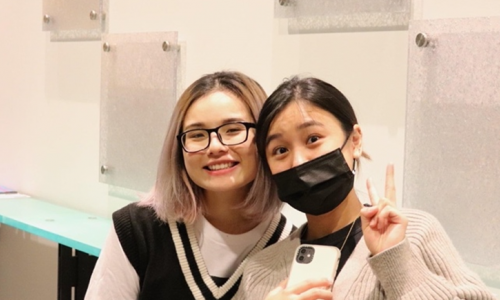
‘Do you want to have dinner together after class?’
‘Oh sorry I can’t, I have another class afterwards.’
‘That’s ok, I’ll be rushing to my night shift after dinner anyways.’
Young adults’ lives are a bit of a balancing act. As we enjoy our first taste of adulthood and university life, more and more things begin to compete for our attention. School, social life, family, work, health…Suddenly, we need to choose priorities when each and every aspect of our lives may seem as important as another. With so many things competing for our time and attention, it’s easy to wonder whether a balanced life is an option or a fantasy.
Family and society play a huge role in our lives, and there are growing expectations from both as we grow older. Independence, maturity, and responsibility are all expected to be maintained once teenagers enter university. And yet, parents still have more control over university students’ everyday life when compared to adults in their thirties or forties. Perhaps because of this, we have become confused about how to share, express, and communicate our feelings in healthy ways. We strive to digest, conceal, and bottle up all the negative emotions and unsightly sides of our lives in order to prove a point: We have our life together, we are in control. We are mature, independent adults.
By trying our best to prove this, we can become prone to turning down all the helping hands that are offered to us. We aren’t good at accepting help.
This isn’t necessary, though. Independence and maturity are not only about doing things on our own. It’s about knowing our abilities and our weaknesses, and knowing what is manageable and what is not. Each individual may have distinct experiences about the same event: some may find university fun, some may find it stressful, and others may feel as if the university experience is forced. We are all entitled to our unique feelings; however, this is also what makes communication so important, as others may have no clue what you are experiencing. Different groups that take part in our life – family, friends, project partners, professors – may put more pressure on us without acknowledging how full our plate already is. We don’t always have the skills or the courage to let people know we are struggling, or we may not have learned how to say “no.”
Although some people may not be as understanding as others, a lot of the time we only need one or two people’s genuine understanding to turn a whole situation around. A conversation with someone who is skilled in listening and thoughtful with advice can show us that there are options, that there is no “right” decision, and that we can learn new skills to be resilient when faced with difficult situations.
There are a thousand problems that we face as we grow into adulthood, and there are a million solutions available if we are willing to communicate. Let’s take the initiative to start letting our inner voices be heard and talk about our major sources of stress. The transition into adulthood is filled with challenges, and it is so important to learn about ourselves, and to listen to each other. Let’s begin talking about our stress, our problems, and our fears as university students and young adults.
Beyond the Blog
-
Find out what resources are available to you through Health and Counselling
-
Book a one-one session with a Career Education Specialist to gain new ideas and feel optimistic about your future.














